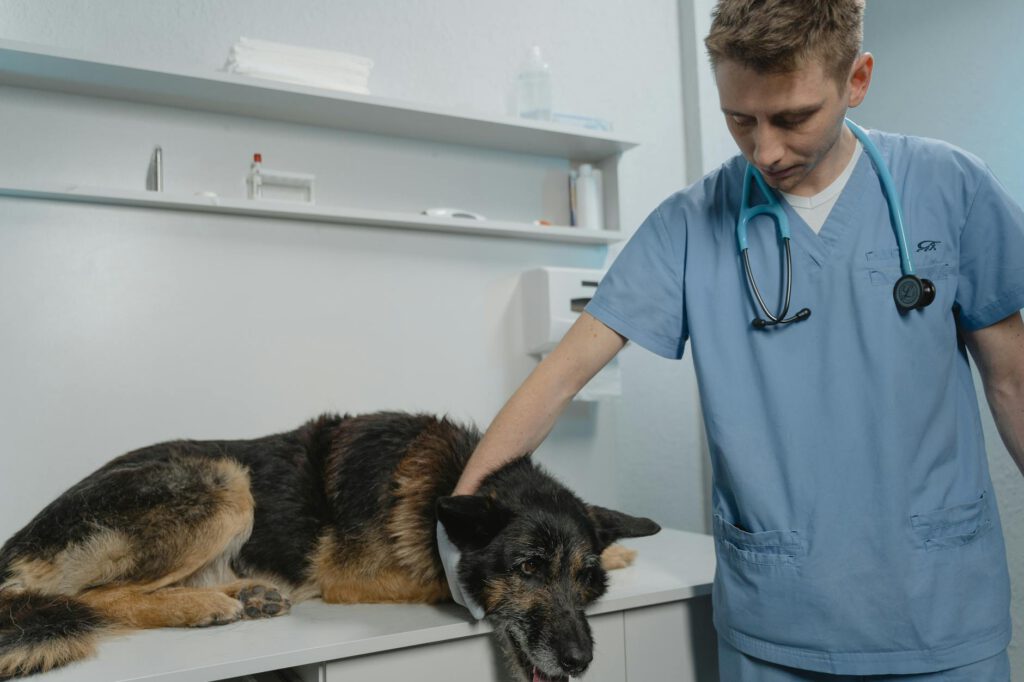Introduction
The demand for convenient, personalized pet care is growing, and mobile veterinary clinics are rising to meet this need. Unlike traditional brick-and-mortar practices, mobile vet clinics bring veterinary services directly to pet owners, offering flexibility, reduced stress for animals, and a unique business opportunity for veterinarians. However, launching a mobile clinic requires careful planning—from securing the right equipment to navigating licensing and regulatory hurdles.
This guide covers everything you need to know about starting a mobile vet clinic, including essential equipment, licensing steps, operational strategies, and expert tips to ensure success.
Why Start a Mobile Vet Clinic?
Mobile vet clinics offer several advantages:
- Convenience for Clients: Busy pet owners appreciate at-home care, especially for routine check-ups, vaccinations, or elderly pets with mobility issues.
- Lower Overhead Costs: Without a physical clinic, expenses like rent and utilities are significantly reduced.
- Less Stress for Pets: Many animals experience anxiety in traditional clinic settings. A mobile service provides a calmer environment.
- Niche Market Potential: Specializing in services like hospice care, farm visits, or exotic pets can set your business apart.
However, running a mobile clinic also presents challenges, such as limited space, travel logistics, and compliance with varying local regulations. Proper preparation is key.
Essential Equipment for a Mobile Vet Clinic
A well-equipped mobile clinic ensures you can provide comprehensive care on the go. Here’s what you’ll need:
1. The Mobile Unit
Your vehicle is the foundation of your business. Options include:
– Custom-Built Veterinary Vans: These are designed with built-in exam tables, storage, and medical equipment.
– Retrofitted RVs or Trailers: A cost-effective solution if you modify an existing vehicle.
– Compact SUVs or Vans: Suitable for basic services if you’re starting small.
Key Features to Include:
– Climate control for medication storage and pet comfort.
– Secure cages or carriers for transporting animals if needed.
– Non-slip flooring and easy-to-clean surfaces.
2. Medical Equipment
Stock your mobile clinic with the same tools you’d find in a traditional practice:
– Diagnostic Tools: Stethoscope, otoscope, thermometer, and portable blood analyzers.
– Treatment Supplies: IV kits, bandages, syringes, and wound care items.
– Portable Imaging: Consider a compact digital X-ray or ultrasound machine for advanced care.
– Pharmacy Essentials: Common medications, vaccines, and flea/tick preventatives.
3. Technology and Software
- Practice Management Software: Tools like Vetspire or ezyVet help with scheduling, billing, and medical records.
- Portable Payment Systems: Square or Clover for on-the-spot transactions.
- GPS and Routing Apps: Optimize travel time between appointments.
4. Safety and Sanitation Supplies
- Disinfectants, gloves, and biohazard disposal containers.
- Fire extinguisher and first-aid kit for emergencies.
Licensing and Legal Requirements
Operating a mobile vet clinic involves adhering to state and local regulations. Here’s how to stay compliant:
1. Veterinary License
- Ensure your veterinary license is current and valid in the state(s) where you’ll operate.
- Some states require additional permits for mobile practices—check with your state veterinary board.
2. Business Registration and Insurance
- Business License: Register your clinic as an LLC or corporation for liability protection.
- Professional Liability Insurance: Protects against malpractice claims.
- Commercial Auto Insurance: Covers your vehicle and equipment during transit.
3. Health and Safety Regulations
- Mobile clinics must meet sanitation standards set by veterinary boards.
- Proper drug storage and disposal protocols are critical (e.g., compliance with DEA regulations for controlled substances).
4. Zoning and Parking Laws
- Some cities restrict where mobile businesses can park or operate. Research local ordinances to avoid fines.
Steps to Launch Your Mobile Vet Clinic
1. Develop a Business Plan
Outline your services, target market, pricing, and financial projections. Consider:
– Will you focus on general practice or a specialty (e.g., dentistry, acupuncture)?
– How will you price services compared to traditional clinics?
2. Secure Funding
Estimate startup costs (vehicle, equipment, insurance, marketing) and explore financing options:
– Small business loans
– Veterinary-specific grants
– Crowdfunding or partnerships
3. Build Your Brand
- Name and Logo: Choose a memorable, professional brand identity.
- Website and SEO: Optimize for local searches (e.g., “mobile vet near me”).
- Social Media: Share client testimonials, pet care tips, and behind-the-scenes content.
4. Market Your Services
- Partner with local pet stores, groomers, and shelters for referrals.
- Offer promotions for first-time clients.
- Leverage Google My Business and Yelp for local visibility.
Tools and Resources
- Veterinary Associations: AVMA (American Veterinary Medical Association) offers mobile practice guidelines.
- Equipment Suppliers: Companies like Midmark and Dispomed specialize in mobile vet setups.
- Networking: Join online forums or local vet groups for advice.
FAQs
Q: How much does it cost to start a mobile vet clinic?
A: Costs vary but typically range from $50,000 to $150,000, depending on the vehicle and equipment.
Q: Can I operate a mobile clinic part-time?
A: Yes! Many vets start part-time while maintaining another job to test demand.
Q: Do I need a separate license for each city I serve?
A: It depends on local laws. Some states require statewide licensing, while others mandate city-specific permits.
Q: How do I handle emergencies in a mobile setting?
A: Have a plan for stabilizing pets and transporting them to a nearby emergency clinic if needed.
Conclusion
Starting a mobile vet clinic is an exciting way to modernize pet care while building a flexible, profitable business. By investing in the right equipment, navigating licensing requirements, and implementing smart marketing strategies, you can create a service that benefits both pets and their owners.
The key to success lies in preparation—research regulations, prioritize pet safety, and focus on delivering exceptional care wherever the road takes you. With dedication and the right approach, your mobile vet clinic can become a trusted resource in your community.

